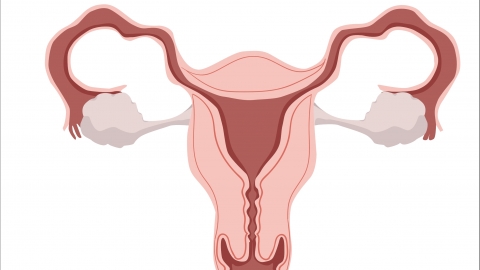What causes a thickened endometrium?
Generally, thickened endometrium may be caused by hormonal fluctuations during the reproductive years, incomplete regulation after puberty, endometrial hyperplasia, polycystic ovary syndrome, ovarian tumors, and other factors. If menstrual abnormalities, irregular vaginal bleeding, or other symptoms occur, it is recommended to seek timely medical consultation and treatment at a qualified hospital. Detailed explanations are as follows:
1. Hormonal fluctuations during the reproductive years
In women of reproductive age, estrogen levels fluctuate cyclically during the menstrual cycle. Prolonged estrogenic stimulation without sufficient progesterone antagonism may lead to excessive proliferation and thickening of the endometrium. It is important to maintain a regular lifestyle, avoid staying up late, and limit excessive intake of foods rich in estrogen, such as royal jelly and edible frog oil.
2. Incomplete hormonal regulation after puberty
In adolescent girls, the hypothalamic-pituitary-ovarian axis is not yet fully mature, leading to unstable hormone secretion. This may result in relatively excessive estrogen levels and subsequent thickening of the endometrium. As girls age, the regulatory mechanisms gradually mature and symptoms usually improve. Emotional stability should be maintained during this period, and excessive anxiety should be avoided.

3. Endometrial hyperplasia
Long-term estrogenic stimulation is the main cause, leading to proliferation of endometrial glands and stroma, resulting in increased thickness. Treatment options include medications such as dydrogesterone tablets, medroxyprogesterone acetate tablets, and progesterone soft capsules, under a doctor's guidance. Regular follow-up examinations of the endometrium are necessary.
4. Polycystic ovary syndrome (PCOS)
Patients often have ovulatory dysfunction and insufficient progesterone secretion, allowing continuous estrogenic stimulation of the endometrium, causing thickening. Treatments may include medications such as ethinylestradiol cyproterone tablets, spironolactone tablets, and clomiphene citrate tablets, under medical supervision. Weight management is also important.
5. Ovarian tumors
Certain ovarian tumors may abnormally secrete estrogen, exposing the endometrium to high levels of hormones over a prolonged period, leading to thickening. Once diagnosed, prompt medical consultation is necessary. Treatment options, including surgery, should be determined based on tumor type and size under a physician's guidance.
In daily life, maintaining healthy habits is important: avoid excessive fatigue, follow a balanced diet with reduced intake of high-fat and high-sugar foods, engage in appropriate physical activity to enhance physical fitness, and undergo regular gynecological examinations for early detection and treatment.









